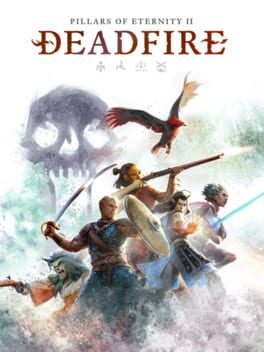After Pillars of Eternity, Deadfire returns to high-fantasy Eora in a refreshing colonial islander setting, similarly tackling its predecessor's themes of human self-determination and colonization from a different angle.
PoE was built on nostalgia for CRPGS like Baldur's Gate and Planescape: Torment, and as such, was beholden to certain ideals and gameplay standards while developing its own unique system. While CRPGs following familiar rulesets to tabletop games is a way to link branding and ease newer players in, it frequently comes off as a clunky practice since old-school CRPG combat uses real-time with pause, while their progenitor tabletop games are built on turn-based combat. Pillars of Eternity's system built from the ground up allowed for gameplay rules that fit the demands of the game, rather than trying to fit a square peg in a circular hole. Deadfire further divorces itself from the Dungeons & Dragons system, such as dropping any reliance on per-rest class abilities and instead opting for a per-encounter standard. Where combat felt like a slog in Pillars of Eternity, I found the action system far more enjoyable in Deadfire. The addition of multiclassing also does wonders for experimentation and replayability.
The player's also dropped in a setting you don't quite often see in high fantasy. The unique setting opens for salient storytelling about tradition and colonization. I found each of the characters are fleshed out and compelling. I did find that a lot of the side stories were more compelling than the central narrative. I haven't played the DLC yet, but I expect the storytelling to be quality there.
Deadfire deserves its spot among my top games.
PoE was built on nostalgia for CRPGS like Baldur's Gate and Planescape: Torment, and as such, was beholden to certain ideals and gameplay standards while developing its own unique system. While CRPGs following familiar rulesets to tabletop games is a way to link branding and ease newer players in, it frequently comes off as a clunky practice since old-school CRPG combat uses real-time with pause, while their progenitor tabletop games are built on turn-based combat. Pillars of Eternity's system built from the ground up allowed for gameplay rules that fit the demands of the game, rather than trying to fit a square peg in a circular hole. Deadfire further divorces itself from the Dungeons & Dragons system, such as dropping any reliance on per-rest class abilities and instead opting for a per-encounter standard. Where combat felt like a slog in Pillars of Eternity, I found the action system far more enjoyable in Deadfire. The addition of multiclassing also does wonders for experimentation and replayability.
The player's also dropped in a setting you don't quite often see in high fantasy. The unique setting opens for salient storytelling about tradition and colonization. I found each of the characters are fleshed out and compelling. I did find that a lot of the side stories were more compelling than the central narrative. I haven't played the DLC yet, but I expect the storytelling to be quality there.
Deadfire deserves its spot among my top games.
